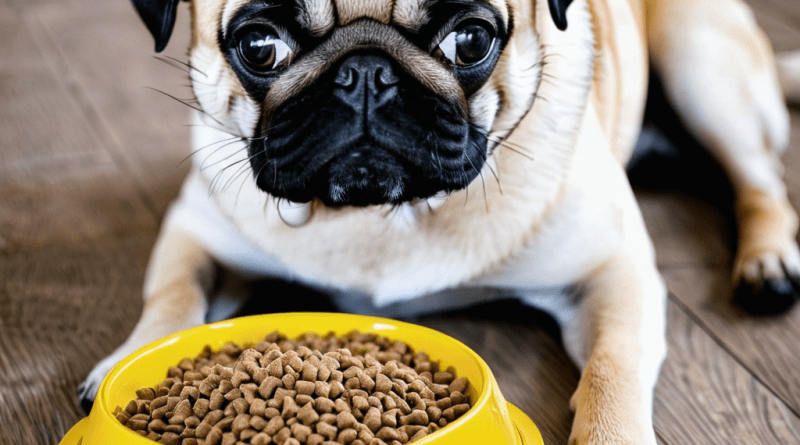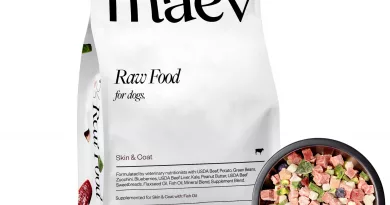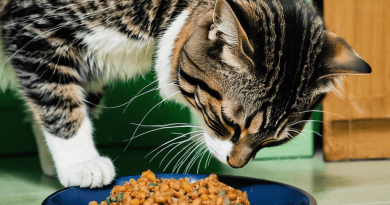Pug Nutrition Essentials
Hello, I'm Bea, a nutritionist and pet food industry insider with a passion for canine well-being and education. In the incredible world of dog breeds, the delightful pug often stands out not only due to its adorable appearance but also because of its unique dietary and behavioral needs. Today, I'm excited to share insights on the best nutrition practices for pug parents. Understanding what to feed your pug and what to avoid can ensure a happy, healthy, and vibrant life for your furry friend. Make sure to follow PetsFI for more engaging and informational posts like this!
Distinguishing Pug Dietary Needs
Pugs, with their distinct flat faces and stocky builds, often require a specialized diet compared to other breeds. Their physical characteristics can influence their eating habits and even the types of food they can safely consume. Pugs are prone to obesity, so a tailored diet and regular feeding schedule can help maintain their weight and overall health.
While pugs can enjoy most organic foods, including a variety of fruits and vegetables, there are particular items that are off-limits. For instance, certain fruits like grapes, peaches, plums, and cherries can be harmful to pugs. Not widely known, but the skin of grapes or the pits found in some fruits can cause serious digestive issues or choking hazards.
Beyond fruits, there are other common foods that may harm your pug. Avocados, mushrooms, green tomatoes, and raw potatoes contain chemicals detrimental to pugs' health. Even high-calorie treats designed for larger dogs can contribute to a pug's weight problems, making portion management critical.
A Feeding Schedule for Your Pug
Unlike their smaller canine counterparts, pugs benefit from being fed three times a day with two healthy snacks in between meals. This consistent feeding schedule helps manage their energy levels and prevents overeating.
Foods to Avoid
Many household foods can pose risks to pugs, including:
- Caffeine: Even small amounts can be deadly to dogs.
- Macadamia Nuts: These can cause weakness, shaking, and vomiting in pugs.
- Excessive Fats: Fat trimmings can be difficult for pugs to digest.
- Raw Fish: Potential for bone splinters and other dangers.
What to Include in Your Pug's Diet
Pugs relish a variety of foods, and as descendants of wild wolves, their diets can be quite diverse. Fresh vegetables, like baby carrots and green beans, offer benefits for dental health and provide essential nutrients. Potatoes, when cooked, can serve as a filling side along with lean meats.
When it comes to protein, lean chicken, beef, lamb, and certain fish are excellent choices. Occasional treats, like small portions of hot dogs, rawhide, pig ears, and real beef bones, also serve as delightful snacks for pugs but should be given sparingly to prevent weight gain.
Harnessing the Power of Cheese
Yes, most dogs, including pugs, love cheese! But moderation is key due to the potential for causing gas. Cheese can be a great training reward if used sparingly.
The Homemade and Raw Diet Option
Sometimes, crafting your dog's meal might be the best approach. This method ensures you have full control over what your pug is eating. Aim for a balanced diet that replicates what their ancestors might have eaten. Bones and raw meats can lead to a shinier coat, healthier skin, cleaner teeth, and heightened energy levels. Always consult your vet before making any significant changes to your dog's diet, though!
It is important to pay close attention when introducing any new food into your pug's diet. Pugs can have specific allergies or sensitivities, so monitoring their reaction is vital for their ongoing health.
With the right knowledge and attention to their unique dietary needs, you can ensure that your pug remains in tiptop condition. Remember, while pugs have specific requirements, they can lead active, joyful lives with the proper care and nutrition. For more fascinating insights and helpful tips on providing your pets with the best possible care, don't forget to follow PetsFI. Together, let's celebrate the health and happiness of our tail-wagging companions!




